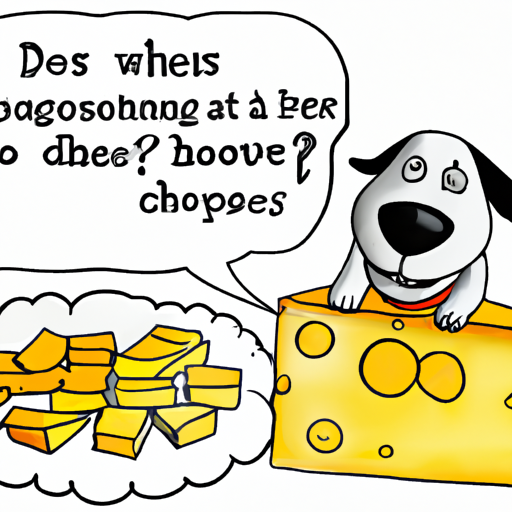Introduction
You may have noticed the eager look in your dog’s eyes at the sight or smell of cheese. Yes, their love for cheese is undeniable. But have you ever stopped to wonder why your four-legged companion is so smitten by this dairy product? Let’s delve into exploring the reasons behind this fascinating canine love affair.
The Allure of Cheese: An Irresistible Scent
Let’s start with the smell. You know how the aroma of freshly baked bread or a simmering pot of stew can make your mouth water? The same principle applies to dogs and cheese. Dogs have an incredibly acute sense of smell—far superior to ours. The pungent, savory scent of cheese triggers their olfactory system, making cheese an irresistible treat.
The Nutritional Value of Cheese
- Protein: Cheese is rich in protein, which is essential for muscle development and energy.
- Calcium: This mineral, abundant in cheese, helps maintain strong bones and teeth.
- Vitamin A and B-complex vitamins: These vitamins support eye health, brain function, and skin health.
While the nutritional benefits of cheese are substantial, remember moderation is key. Too much cheese can lead to obesity and other health issues in dogs.
The Behavioral Aspect: Cheese as a Reward
As a caregiver, you’ve probably used cheese as a high-value reward during training sessions. It’s a powerful motivator for dogs. Just like we get a dopamine rush from our favorite foods, dogs too experience a wave of pleasure when they get that delicious chunk of cheese as a reward.
Cheese – Not All Are Created Equal
| Type of Cheese | Safe for Dogs? | Notes |
|---|---|---|
| Cheddar | Yes | High in fat, moderate amounts only |
| Cottage Cheese | Yes | Low in fat, good in small amounts |
| Blue Cheese | No | Contains roquefortine C, which is toxic to dogs |
| Feta | Yes | High in sodium, small amounts only |
Frequently Asked Questions
Q: Can all dogs eat cheese?
A: While most dogs can safely enjoy cheese, some dogs may be lactose intolerant and should avoid dairy products.
Q: How much cheese can I give my dog?
A: Moderation is key. Small amounts of cheese can be a great treat, but too much can lead to health problems.
Q: Are there any types of cheese I should avoid?
A: Yes. Avoid feeding your dog blue cheese as it contains a substance that can be toxic to dogs.
We hope this article has shed some light on why your furry friend is so fond of cheese. As always, it’s important to know your pet’s dietary needs and restrictions. When in doubt, consult with your veterinarian.



